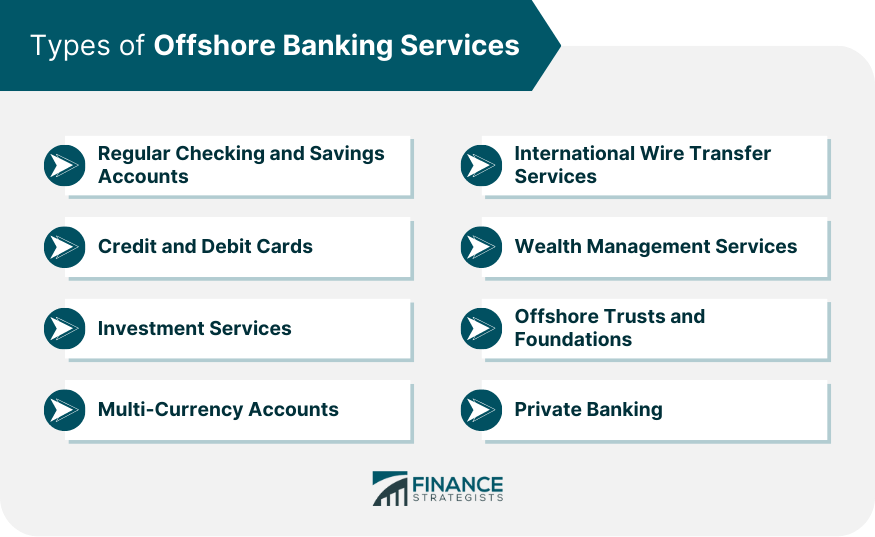Offshore Company Formations for Tech Startups: A Practical Guide
Wiki Article
Debunking Offshore Firm Formations: How They Run and What to Expect
Offshore business formations can seem facility and enigmatic. Offshore Company Formations. These entities, typically developed for tax obligation benefits and privacy, operate under special legal frameworks. Entrepreneurs may discover themselves steering through a puzzle of regulations and conformity requirements. Recognizing the ins and outs is important for success. What are the actual benefits? What are the potential risks? A closer evaluation reveals the nuances that might affect decision-making substantiallyUnderstanding Offshore Companies: Meanings and Kinds
Offshore firms are entities established in a territory beyond an individual's or service's primary nation of house, often for objectives connected to tax optimization, property security, or governing advantages. These companies can take various kinds, consisting of restricted obligation business (LLCs), international company firms (IBCs), and offshore depends on. Each kind offers particular features and attract different demands.Limited responsibility business offer owners with defense from personal responsibility, while international business companies are prominent for their versatility and minimal coverage demands. Offshore trusts, on the various other hand, are made use of mostly for estate preparation and asset defense.
The selection of jurisdiction significantly affects the business's operations, as some areas offer extra favorable legal frameworks and personal privacy defenses. Offshore Company Formations. Recognizing the differences in between these kinds is vital for individuals and organizations taking into consideration overseas frameworks, as each alternative lugs different implications for governance and conformity
The Advantages of Establishing an Offshore Firm
Establishing an overseas business can offer numerous benefits, particularly for those seeking to enhance their monetary approaches and protect their assets. One considerable benefit is tax optimization; several territories provide beneficial tax obligation rates or exceptions, allowing companies to maintain more profits. Furthermore, offshore firms can give a layer of personal privacy, shielding the identifications of proprietors and shareholders from public scrutiny.Another benefit is possession defense. By positioning assets in an overseas entity, individuals can safeguard their wealth from prospective legal cases or political instability in their home nations. This framework likewise facilitates worldwide service procedures, allowing much easier accessibility to varied customers and international markets.
The facility of an overseas business can enhance reliability and stature, appealing to customers that value international service techniques. On the whole, these advantages make offshore business formations an eye-catching choice for individuals and organizations aiming for economic growth and security.
Trick Considerations Prior To Creating an Offshore Entity
Before forming an overseas entity, numerous critical factors need to be analyzed. Lawful conformity demands, tax ramifications and benefits, as well as territory choice, play a substantial duty in the decision-making procedure. Understanding these factors to consider can aid businesses and individuals navigate the complexities of overseas business formations successfully.
Lawful Conformity Requirements
When considering the formation of an offshore entity, recognizing lawful conformity requirements is vital to assure adherence to both international and neighborhood regulations. Potential service proprietors have to familiarize themselves with laws controling firm enrollment, reporting responsibilities, and operational standards in the selected territory. This includes validating the legal requirements for directors and investors, in addition to making certain compliance with anti-money laundering (AML) and know-your-customer (KYC) policies. Additionally, services must continue to be conscious of any type of licensing demands certain to their sector. Engaging neighborhood lawful and monetary professionals can offer beneficial insights, making certain that all necessary documents is prepared and submitted appropriately. Eventually, extensive expertise of legal compliance assists alleviate risks and promotes a lasting overseas procedure.Tax Obligation Effects and Advantages
Numerous business owners think about the tax implications and benefits of forming an overseas entity as an important variable in their decision-making process. Offshore companies can offer substantial tax obligation benefits, such as minimized business tax prices, exemption from specific local taxes, and the ability to delay tax obligations on international income. These advantages can lead to boosted success and money circulation, making offshore frameworks appealing for international business operations. In addition, the possibility for tax treaties may additionally decrease tax obligation obligations. However, it is important for business owners to understand the complexities entailed, consisting of conformity with both worldwide and local tax obligation guidelines. Involving with tax specialists is recommended to browse these complexities successfully and assure perfect tax preparation approaches.Territory Selection Aspects
What variables should one think about when picking a jurisdiction for overseas company development? Secret considerations consist of tax obligation effectiveness, governing setting, and political security. Territories with beneficial tax obligation routines can considerably influence productivity. The governing landscape must provide versatility and ease of conformity, permitting efficient service procedures. Political security is important, as it assures the security of assets and continuity of procedures. Furthermore, the online reputation of the jurisdiction can influence customer trust and service relationships. Accessibility to financial services and the schedule of expert assistance services are additionally essential. Understanding local regulations relating to possession, privacy, and reporting demands is crucial to establish that the overseas entity lines up with the company proprietor's objectives and legal obligations.The Process of Setting Up an Offshore Company
Establishing an offshore company entails a series of strategic actions that need mindful planning and conformity with international laws. An individual have to select an ideal territory that straightens with their business goals and uses positive tax obligation benefits. Adhering to jurisdiction selection, the next step is to choose an unique firm name and prepare the needed documentation, including posts of incorporation and investor agreements.When the documents is ready, it needs to be submitted to the pertinent authorities in addition to the needed fees. After authorization, the company will receive a certificate of incorporation, officially developing its lawful presence. The specific must then open up a business checking account to promote economic purchases.
Lastly, keeping an overseas firm includes adhering to continuous compliance needs, such as annual reporting and tax obligation obligations, which differ by jurisdiction. Comprehending each action is important for an effective offshore company development.

Lawful and Regulatory Framework for Offshore Business
While developing an offshore company can use significant benefits, it is necessary to steer through the complex lawful and regulatory framework that governs such entities. Each territory has its own collection of laws that dictate whatever from company development to tax and compliance requirements. These laws are developed to avoid illegal activities, such as cash laundering and tax evasion, and commonly call for thorough documentation and transparency.Crucial element of this framework consist of the need of assigning neighborhood supervisors, preserving a licensed office, and sticking to yearly coverage obligations. In addition, several jurisdictions impose particular licensing needs for sure service activities. Comprehending these legal specifications is essential for ensuring compliance and mitigating risks related to penalties or lawful disagreements. Engaging with lawful experts who specialize in overseas companies can aid in steering through this intricate landscape, inevitably assisting in a successful and compliant offshore service procedure.
Usual Mistaken Beliefs Regarding Offshore Firms
Lots of people hold mistaken beliefs about overseas business, usually equating them with tax obligation evasion and prohibited activities. It is essential to recognize that these entities can operate legally within a framework created for legitimate service practices. Making clear the legal standing of overseas link companies can assist resolve these myths and promote a much more accurate understanding of their function.Tax Evasion Myths
Despite the growing appeal of offshore business, misunderstandings concerning their use for tax obligation evasion continue. Many people incorrectly think that developing an overseas entity is only a way to prevent tax obligations. Nevertheless, overseas firms are commonly made use of for genuine objectives, such as property security, international company expansion, and investment diversification. The assumption that all offshore activities equate to illegal tax evasion forgets the complexities of worldwide tax laws and compliance requirements. In addition, the vast majority of offshore jurisdictions have carried out measures to deal with tax obligation evasion, advertising openness and information exchange. This mischaracterization can prevent legit organizations and financiers from exploring the possible benefits of overseas company formations while perpetuating an adverse stigma bordering these entities.Lawful Status Clarified
The legal status of overseas firms is typically misunderstood, resulting in a selection of misconceptions. Several believe these entities operate in a legal grey location, assuming they are unethical or inherently prohibited. Actually, offshore firms are reputable businesses created under the legislations of specific territories, created for different factors, consisting of property defense and market development. Another usual misconception is that overseas companies avert taxes completely; nonetheless, they undergo the guidelines and tax obligation responsibilities of their home nations. In addition, some individuals think that offshore business can be conveniently exploited for cash laundering or illegal activities. While abuse can happen, a lot of territories enforce strict compliance and openness laws to alleviate such threats, guaranteeing that overseas firms run within lawful frameworks.
Handling and Running Your Offshore Firm Properly
Properly taking care of and operating an overseas firm requires a critical method that balances compliance with local policies and the quest of business goals. Successful offshore administration entails comprehending the territory's tax obligation regulations, reporting requirements, and operational regulations. Utilizing neighborhood experts, such as accounting professionals and legal advisors, can supply invaluable understandings into passing through these complexities.In addition, developing clear interaction channels and functional protocols is important for keeping performance. Making use of modern technology for job administration and collaboration can enhance productivity, while routine efficiency examines assurance alignment with calculated objectives.
Additionally, maintaining durable financial documents is vital, as transparency fosters depend on with stakeholders and complies with international criteria. Ultimately, being adaptable to modifications in legislation or market problems permits overseas business to pivot effectively, assuring lasting sustainability and development. By sticking to these concepts, entrepreneur can optimize the benefits of their overseas ventures while mitigating dangers.
Regularly Asked Questions
Just how much Does It Cost to Maintain an Offshore Company Annually?
The price to maintain an offshore firm each year differs significantly, commonly varying from $1,000 to $5,000, depending upon territory, solutions required, and conformity obligations. It is important to consider added charges for specific demands.Can I Open Up a Savings Account for My Offshore Firm Remotely?
Opening up a checking account for an offshore company remotely is generally possible. Needs might differ by territory, commonly requiring paperwork and verification processes, which can make complex the remote application experience for people.Exist Certain Countries Understood for Easier Offshore Company Formations?
Particular countries, such as Belize, Seychelles, and the British Virgin Islands, are renowned for their structured processes and desirable guidelines regarding offshore firm formations, drawing in this contact form business owners seeking performance and confidentiality in service procedures.
What Sorts of Organizations Are Best Matched for Offshore Companies?
Specific organizations, such as working as a consultant, e-commerce, and financial investment firms, usually take advantage of overseas companies as a result of tax obligation advantages, personal privacy, and regulatory adaptability - Offshore Company Formations. These entities normally grow in territories that advertise positive business atmospheresJust How Can I Guarantee Conformity With Neighborhood Regulations When Running Offshore?
To ensure conformity with local regulations when operating offshore, it is necessary to involve legal experts, conduct comprehensive research on jurisdiction regulations, and maintain clear economic documents, consequently lessening dangers connected with non-compliance.
Report this wiki page